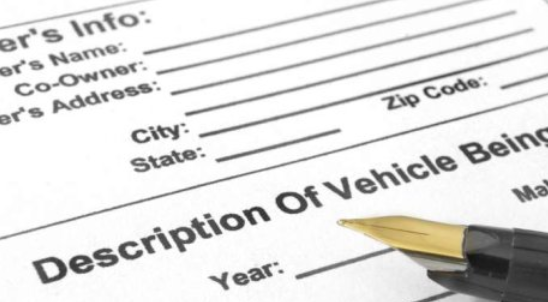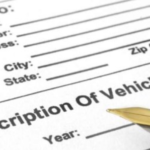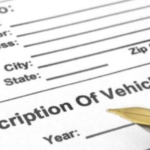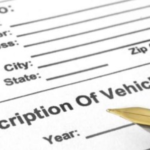Last Updated on March 22, 2018 by Jason Mason
In Kansas, when you buy a car, you must get paperwork from the seller. This paperwork includes the vehicle title and odometer reading. Once you get all the required paperwork, you must then register and title your car with Kansas Department of Revenue (DOR). You will be required to show them those paperwork and proof of insurance before processing your application.
To title and register the car
If you buy a car from a dealer, they will process the required paperwork on your behalf. But when you buy it from a private seller, you must process the required paperwork yourself. You must get the required paperwork from the seller to help you register and title your car.
Vehicle Titles
You must get a vehicle title from the seller. This is the most important document which you must present to the DOR to register your car. This document must be signed by you and the seller, and it includes:
- Lien information, if applicable.
- Your name and address.
- The odometer reading.
- The odometer status if the vehicle is 10 years old or less or the vehicle is a truck registered below 20M for tax purposes.
- The date of purchase.
- The purchase price.
- The seller’s signature.
- Your signature.
NOTE: The vehicle title does not need to be notarized.
Electronic Title
If the seller has an electronic title, you will need the following instead of the vehicle title itself:
- The current registration
- A completed Form TR-39a (Electronic Title Sales Agreement).
Missing Title
If the vehicle title is missing, ask the seller to apply for a duplicate copy before selling the car to you. Don’t accept the vehicle if it doesn’t have a title.
Sales Tax Documents
To register and title the vehicle after purchase, sales tax documents are also required. Sales tax differs depending on where you bought the car from. For cars bought from a private seller, the information printed on its back is enough as long as it includes:
- The purchase price.
- Your printed name and signature.
- The seller’s printed name and signature.
If there is no information on its back, you will need one of the following:
- The Affidavit of Purchase Price (Form TR-11).
- A bill of sale.
For vehicles bought from a dealer, you will need one of the following documentation:
- Invoice from the dealer with the purchase price from an out-of-state dealer.
- A Statement of Retail Sales Tax Paid by a dealer in Kansas.
NOTE: If the car has a title registered in another state, you will also need to carry out motor vehicle examination with the Kansas inspection station. This is an inspection exercise to verify vehicle inspection number (VIN).
Kansas Tile Transfer and Registration
You must register and title your car within 60 days from the date of purchase. You can do that in person by visiting your local Kansas DOR office. You must take with you:
- Proof of car insurance.
- The completed vehicle title.
- Proof of a motor vehicle examination, if you bought the car from another state.
- Payment for taxes and fees.
Required fees and taxes
- $10 title fee.
- Sales tax, if you had not paid it.
- Registration fee, which varies by county.
You will be issued with a new vehicle license plate after submitting the required documents and fees.
Vehicle Fraud in Kansas
Buying a used car, especially from a private seller, comes with its challenges. You may be a victim of several vehicle frauds in Kansas. However, there are several ways that you can employ to avoid these scams. They include:
- Carefully examining the vehicle yourself before purchase.
- Requesting the vehicle’s title history.
- Hiring a qualified mechanic to inspect the vehicle before purchase.
- Getting a vehicle history report for the vehicle that you are purchasing.
Vehicle History Reports
A vehicle history report is a vital document that can help you know the condition of the vehicle you are buying. Request this report from the Kansas DMV in order to review data about the used car that you are about to buy. This report usually includes:
- Past damages.
- Odometer reading.
- An accident history.
This information from a Vehicle History Report can help you confirm what the seller is telling you about the vehicle they are selling.




